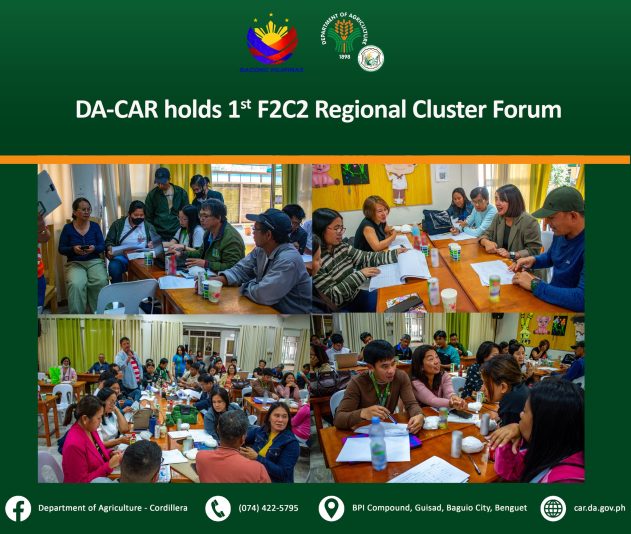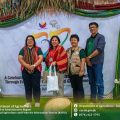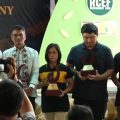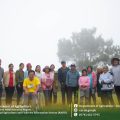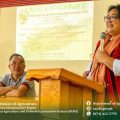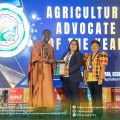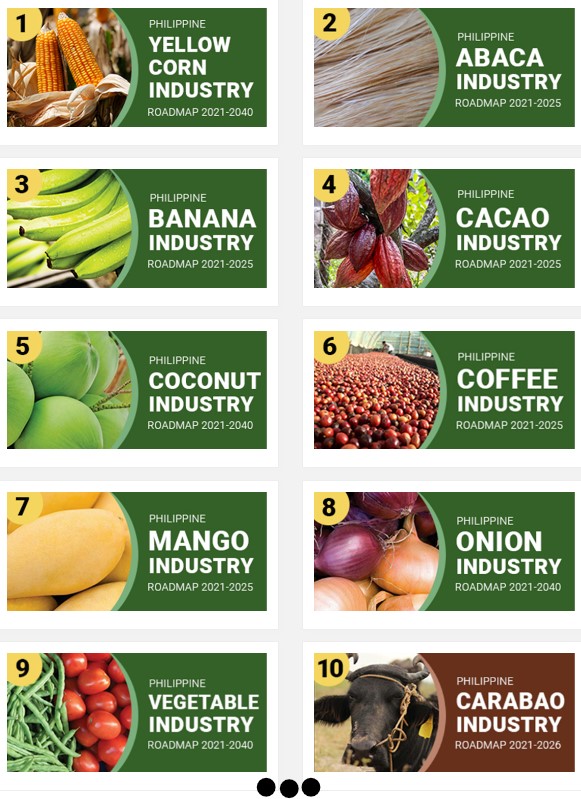To create awareness and promote mainstreaming of the program among the stakeholders and project partners, the Department of Agriculture – Cordillera Administrative Region (DA-CAR) conducted the 1st Farm and Fisheries Clustering and Consolidation (F2C2) Program Regional Cluster Forum on February 21-22, 2024 at the DA-Agricultural Training Institute-Regional Training Center-CAR in La Trinidad, Benguet.
Twenty-seven (27) clusters from the six (6) provinces of CAR participated in the activity that aims to advance the interaction of the mobilized F2C2 clusters through inter-organizational learning.
In her welcome address, DA-CAR Regional Executive Director Atty. Jennilyn M. Dawayan underscored the importance of clustering. She particularly mentioned the need to cluster the highland vegetable stakeholders for a more collaborative partnership to avoid the recent mishaps that happened during the past 3 months. Further, this will give them an opportunity to have a wider market aside from the Benguet Agri Pinoy Trading Center and the La Trinidad Vegetable Trading Post.
She also said that due to the limited budget of the F2C2 program, the DA-CAR will look into possible additional budgets that will be derived from the savings of the banner programs to fund the clusters through the program.
The creation of the F2C2 Program was based on the Administrative Order (AO) 27, series of 2020 or the “Establishing the Farm and Fisheries Clustering and Consolidation Program (F2C2) Towards Greater Inclusive Agribusiness Development in the Country”. This is one of the strategies under the four pillars of OneDA Reform Agenda of then Agriculture Chief William Dar. In the Cordillera, the four (4) Pilot Clusters (Two (2) from Hybrid/Inbred Rice and two (2) from Hybrid Yellow Corn) are from Ifugao and Kalinga.
Currently, there are 32 clusters in the region composed of 76 Farmer Cooperatives and Associations (FCAs) of rice, corn and cassava, high value crops, livestock, heirloom rice and fisheries.
During the break-out session, clusters reviewed their submitted 5-year Cluster Development Plan. The CDPs were reviewed together with the Banner Programs to see the support that can be given to them, particularly this 2024 and 2025, especially because 2025 Budget Preparation and Review is on-going.
Further, partner agencies namely Labor and Employment (DOLE), Trade and Industry (DTI), Science and Technology (DOST), Securities and Exchange Commision (SEC), Cooperative Development Authority, DA attached bureaus and agencies such as the Philippine Rice Research Institute (PhilRice), Fertilizer and Pesticide Authority, Agricultural Training Institute – CAR, and private sectors Pacific Rim and Innovation and Management Exponents (PRIMEX), and Sahei Core Tech presented their programs and projects that the clusters may avail.
To further inspire the participants, Rico Geron, the CEO of the Sorosoro Ibaba Development Cooperative (SIDC) shared their best practices in consolidated marketing. Geron said that one of the problematic aspects in agriculture is marketing, as more farmers focus on production without considering their markets first, “Wider production needs a wider market. Consider your market first before entering in a wider market endeavor as markets need to be concretized,” he said adding that farmers must have patience with long-term engagements to avoid huge financial losses. “Kung ang pananaw mo ay mabilis na pakinabang, then cooperative is not for you. It is really a matter of sacrifice. Based on my experience, importante sa mga FCAs na mai-develop ang impression na tayo ay lumalago, para ang pakinabang ay lumalago din. Hindi rin pwede na kayo-kayo lang na nasa kooperatiba ang lumalago, because a cooperative is designed to grow by continuously accepting new members,” he said.
In his inspirational message, former DA-CAR RED Cameron P. Odsey highlighted the F2C2 as one of the agricultural strategies to aid the farmers who are producing crops that are not deemed “priority” commodity, especially in the Cordillera region which has a unique topography from the rest of the country that are lowlands, in which the guidelines of DA are mostly anchored. “Kitan tayo nu anya ba ti bentahe tayo ti naduma-duma nga rehiyon. Adda ti mula tayo ditoy (CAR) nga ditoy lang nga agtubo nga nasyaat, napintas ken naimas such as highland vegetables, heirloom rice, and arabica coffee. That should be maintained. But we must also improve our products to be competitive with other nation,” [Let us see what is our selling point apart from the other region. We have crops that endemically grows in CAR such as highland vegetables, heirloom rice, and arabica coffee. That should be maintained. But we must also improve our products to be competitive with other nation], he stated encouraging the farmers to apply for good agricultural practices (GAP) certification.
It was during his leadership that the F2C2 Program started in the region, specifically encouraging to include CAR’s champion commodities (heirloom rice and arabica coffee) as clusters which are not originally included in the AO 27.
In closing, Senior Agriculturist Engr. Miriam Pastor reiterated the importance of CDP as the basis of all the banner programs in identifying their programs, projects and activities for the succeeding years. “Haan daytoy nga end dagitoy CDPs yo, this is a continuous revision. There will be a development nga mapanunot yo nga inayon yon to idiay CDPs yo then you will revise. This is a development plan to develop your clusters for the agricultural development as we have one goal: to increase food security,” she stated.
[Your CDPs is not the end, this is a continuous revision. There will be a development that you will think of an idea that you will add in our CDPs and will revise. This is a development plan to develop your clusters for the agricultural development as we have one goal: to increase food security.] // Cy-j E. Waytan

